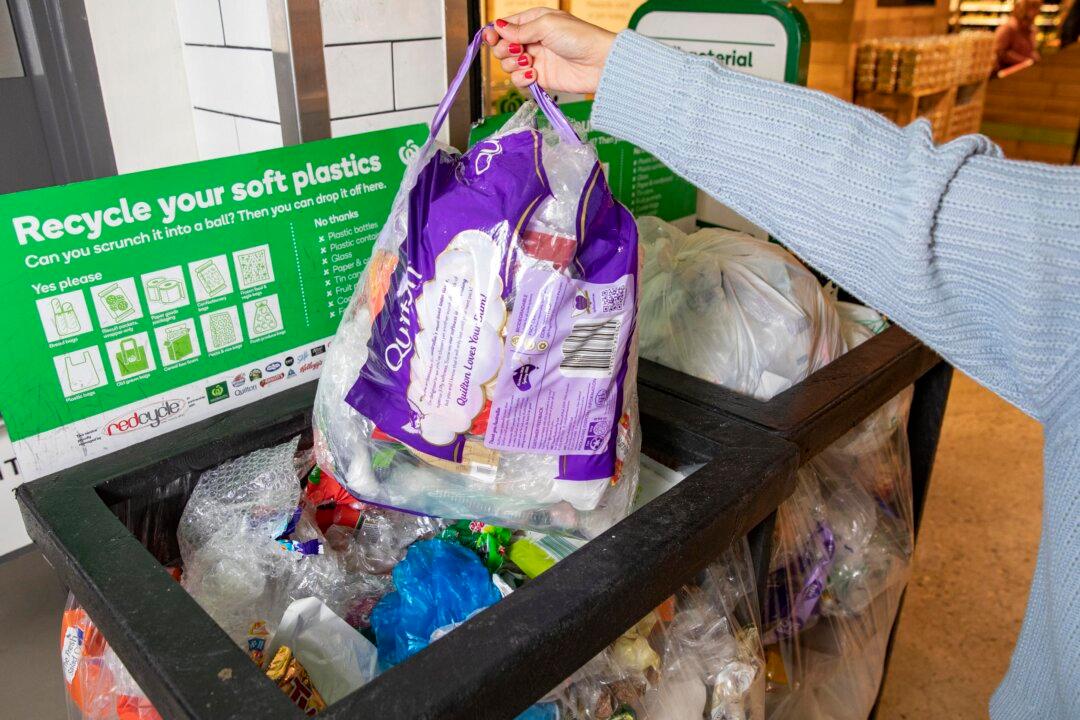Australia’s major supermarket chains will not receive any more time to move high-risk soft plastic stockpiles from the failed REDcycle recycling scheme after an extension request was denied.
Coles and Woolworths were issued with a draft clean-up notice for 5200 tonnes of plastic stored at 15 sites in NSW earlier this year.





